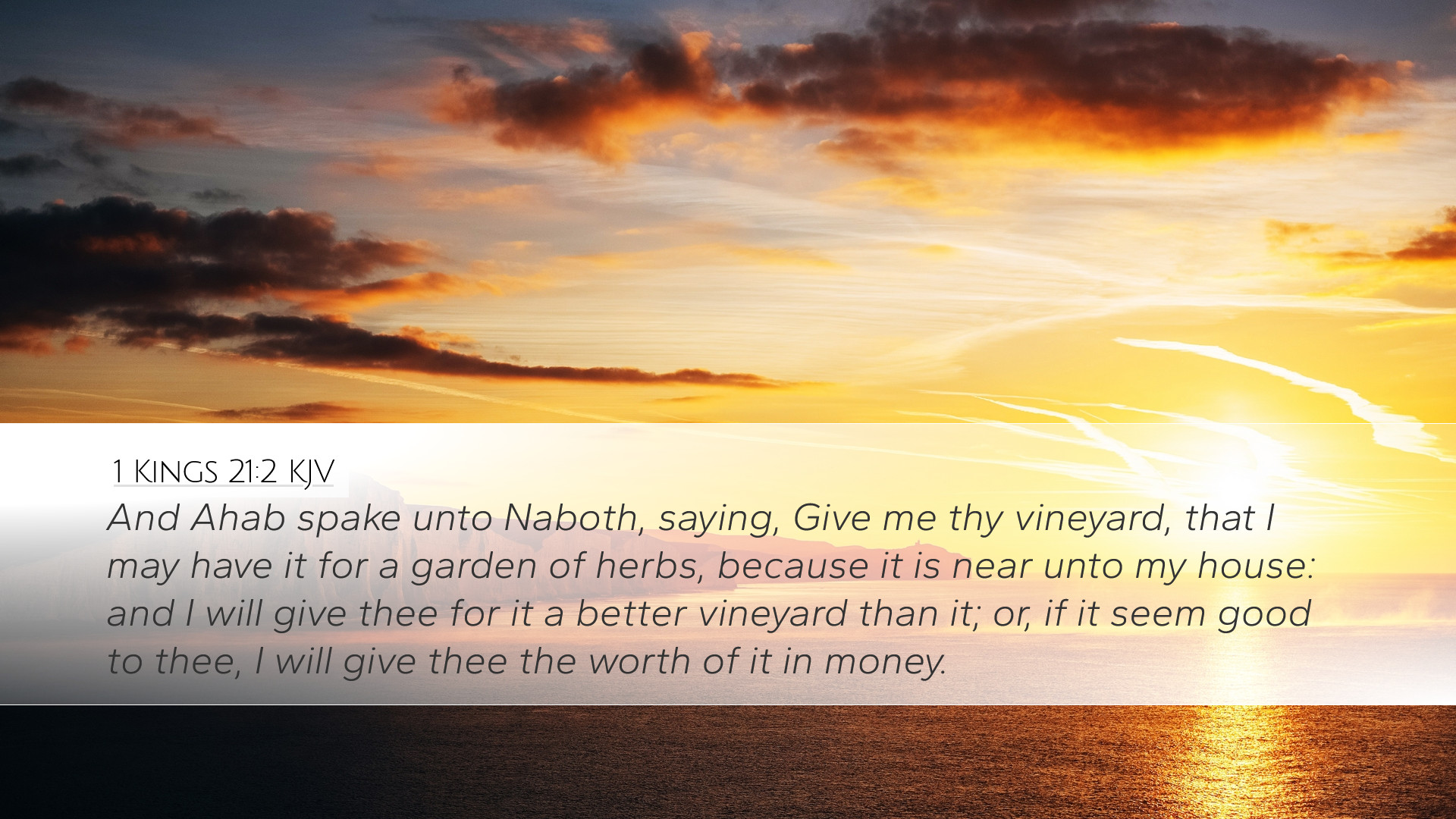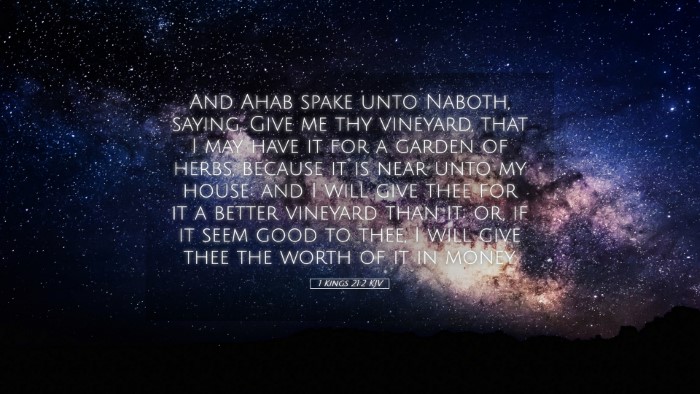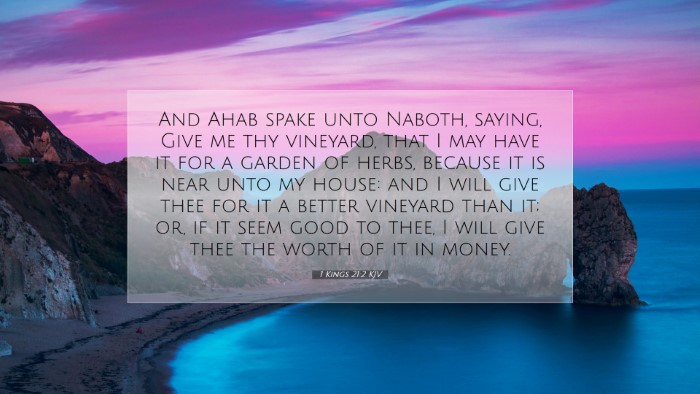Commentary on 1 Kings 21:2
1 Kings 21:2 reads: "And Ahab spake unto Naboth, saying, Give me thy vineyard, that I may have it for a garden of herbs, because it is near unto my house: and I will give thee for it a better vineyard than it; or, if it seem good to thee, I will give thee the worth of it in money."
Contextual Background
This passage narrates an episode in the reign of King Ahab of Israel, who desired Naboth's vineyard for personal gain. The backdrop of this narrative illustrates the struggle of morality against greed and the sanctity of personal property within the context of God's law.
Commentary Insights
The following insights are derived from classic public domain commentaries, emphasizing the theological and moral implications embedded in this verse.
Ahab's Desire
Matthew Henry observes that Ahab's request is not merely a simple offer for land; it reflects a deeper lust for power and control. His desire for Naboth's vineyard epitomizes the corrupting effect of wealth and power:
- Corruption of Authority: Ahab, despite being king, is depicted as lacking true authority grounded in righteousness; his approach showcases a blatant misuse of power.
- Personal Gain vs. Moral Duty: The king's insistence on acquiring private property for personal gain highlights a disregard for the rights of others and God's commandment.
Naboth's Position
From the perspective of Naboth, Albert Barnes notes how this passage reflects his righteous adherence to the laws governing Israelite land ownership:
- Inheritance as Sacred: Naboth's refusal to sell the vineyard underscores the sanctity of familial inheritance as mandated by law in Leviticus 25:23.
- Courage in Faithfulness: Naboth's firm stance serves as a testament to his character and commitment to God's commands amidst pressure from the throne.
Theological Implications
Adam Clarke provides valuable theological observations on the implications of this passage:
- Divine Sovereignty vs. Human Desire: The interaction between Ahab and Naboth exemplifies the tension between divine sovereignty and human desire, revealing how individuals often struggle with greed.
- Consequences of Sin: Ahab’s actions set in motion a series of events leading to greater sin, illustrating the principle that the desire for material wealth can lead to ethical compromise.
Lessons for Today
This narrative carries significant lessons for contemporary readers, particularly for pastors, students, theologians, and scholars:
- Ethics of Leadership: Leaders must be reminded of the ethical dimensions of their authority. Like Ahab, the danger of misusing power for personal gain looms large.
- Value of Integrity: Naboth's integrity invites believers to adhere to God's laws, even in the face of overwhelming temptation. The narrative encourages readers to uphold moral principles.
- Caution Against Materialism: Ahab's desire for Naboth's vineyard illustrates the dangers of materialism, prompting believers to assess their own values and priorities.
- Importance of Prophetic Voices: The events that follow this interaction, which include Naboth's unjust death, highlight the responsibility of prophetic figures in society to speak out against injustice.
Conclusion
1 Kings 21:2 represents a profound intersection of human desire, divine command, and moral integrity. It serves as a cautionary tale against the abuse of power and a reminder of the eternal value of integrity and justice. As scholars and practitioners of faith, the reflections evoked by this passage encourage diligent engagement with scripture and a commitment to living out God’s commandments in every sphere of life.


